






EMILY GRINSTEAD
Contributing Writer
Virginia Commonwealth University will freeze hiring for the Federal Work-Study program ahead of the spring 2025 semester, according to an email sent to FWS students shared on Reddit.
Students enrolled in the spring semester Federal Work-Study program received an email announcing the decision to “not open Work-Study hiring for the spring 2025 semester,” according to the Reddit post. The student was informed that their WorkStudy award was therefore canceled for the spring 2025 semester.
The decision follows an $11 billion budget cut for the Department of Education by the House of Representatives’ Labor, Health and Human Services, Education and Related Agencies subcommittee. Furthermore, there was a cut of $615 million to the Federal Work-Study program, according to the Fiscal Year 2025 Labor, Health and Human Services, Education, and Related Agencies Appropriations Act.
The FWS program provides jobs for undergraduate and graduate students in financial need to help fund college expenses. Students must be authorized in an official FWS position, on- or off-campus, to receive funds. Students can then earn a set amount of money throughout the academic year, according to VCU’s Student Financial Services website.

The program at VCU is federally funded through a “specific and limited allocation” of funds provided by the U.S. Department of Education, Edwin Funes, VCU’s assistant director of Federal Work-Study, stated in an email. With the limited funding, the university decided to close hiring for the spring semester.
Given that so many students rely on these positions and the opportunities they provide, it is very disheartening and urges me to know why these positions are being cut from those who need it most.”
Kaitlyn Lee, fourth-year psychology and gender, sexuality and women’s studies student
Compounded by budget cuts in Congress, the program has reached capacity, with about 1,300 students enrolled in the FWS program at the university during the 2024-2025 academic year, according to Funes.
“We have reached our hiring limit and funding capacity for the academic year. As a result, the FWS program will not reopen hiring for the spring 2025 semester,” Funes said.
This decision does not impact students currently employed in Work-Study positions, according to Funes. Furthermore, the decision will not impact eligibility for FWS in the future.
VCU encourages students who were denied FWS employment to take advantage of other on-campus and close-to-campus employment opportunities offered through Handshake, which do not use FWS funding, Funes stated in an email.
Daniella Ruiz, a third-year psychology student, is currently employed for the spring 2025 semester as a research assistant. She said the professor she is employed with informed her the program would not be hiring any new students for the spring semester.
“My professor did say how they couldn’t hire any more research assistants,” Ruiz said. “So I was a little worried on my behalf because I don’t know what that meant for next semester.”
A friend of Ruiz working under FWS
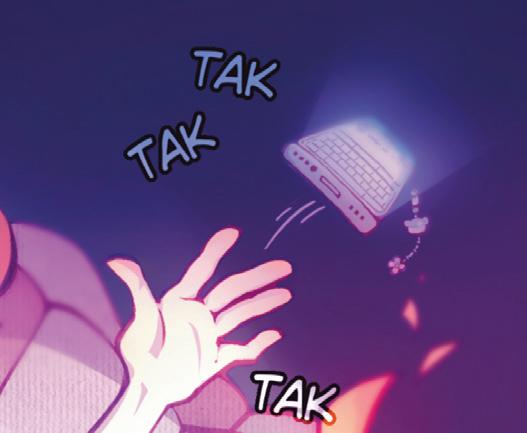
received an email regarding not being rehired for the spring 2025 semester, according to Ruiz. The friend shared the emails with Ruiz and others in the program, who were unaware of the decision made by the university to freeze hiring due to budget restraints.
“I thought it was interesting how she got it and the rest of us didn’t,” Ruiz said.
Kaitlyn Lee, a fourth-year psychology and gender, sexuality and women’s studies student, has been employed as a research assistant through FWS since last fall. Lee heard about the program’s cancellation towards the end of last semester.
“Given that so many students rely on these positions and the opportunities they provide, it is very disheartening and urges me to know why these positions are being cut from those who need it most,” Lee stated in an email.
Faustina Koduah, a third-year information systems student, has been employed through FWS since her first year at VCU, and is currently employed for the spring semester. Koduah said the program supports her essential needs, like buying groceries.
“I feel like a lot of people with lower income households will struggle because the Work-Study is made for them, and it really has helped me and a bunch of my other friends who also are in the program as well,” Koduah said.
Stories
national: Wildfires destroyed over forty thousand acres and over twelve thousand structures in the Los Angeles area.
international: Lebanon’s parliament elected former army commander Joseph Aoun as president and International Court of Justice president Nawaf Salam as prime minister.

JACK GLAGOLA News Editor
A momentary power outage at Richmond’s water treatment plant following the snowstorm on Jan. 5 caused a water quality catastrophe, leading the Department of Public Utilities to issue a boil notice and advise people to conserve water on Jan. 6. Richmonders collected snow to flush the toilet and do laundry until Friday, Jan. 10 when water pressure was restored, according to The Associated Press. The boil notice was lifted the next day, according to the city’s website.
VCU, after closing on Jan. 6 for snow, operated virtually for the remainder of the week due to the water outage. VCU Health followed emergency protocols, according to a VCU Alert.
The water outage came right as the university was preparing for students to return after winter break. Freshman moveins typically last three days, though firstyear residence halls remained closed until Jan. 12, Residential Life and Housing shared on Instagram. Returning upperclass students were “strongly encouraged” to return to campus then as well.
Maya Wick, a third-year psychology and

criminal justice student at VCU, said she had to drive all the way to Chester, 16 miles away, to buy bottled water after finding Henrico stores sold out.
“Luckily, my sister lives over there so she was able to get me some water,” Wick said.
Wick said she thought about leaving the city but decided not to for her cat’s sake.
“I didn’t want to have to move him and stress him out for no reason,” Wick said.
Necessary household activities like showering, laundry, cleaning and flushing the toilet became extremely difficult when water pressure was lost. Wick said it was “really frustrating” to lose water and it left her feeling like “filth.”
“I wasn’t prepared for the pressure to go out completely, so I had to travel to nearby restrooms in Henrico to use the bathroom if I wanted to, which is a little inconvenient,” Wick said.
Wick said the city could have done more in the past to prevent this from happening, but she said the city has been doing a good job keeping people updated.
“Hopefully moving forward they’re prepared, especially since I think there’s a little bit of fear with this new snow coming in that it could happen again,” Wick said.
About two inches more of snow fell on Friday evening. No additional outages were reported and the order was lifted the next day after the water passed quality checks, according to the city’s website.
Nawh Tamara, a fourth-year kinetic imaging student, said the outage was a “terrible” situation and disrupted his dayto-day life during the last week of break.
“It was really unfortunate to see Richmond, the capital of Virginia, have this issue,” Tamara said. “It’s a scandal, to say the least.”
Sharif Blount, a third-year exercise science student, said he thought the city handled the shortage well considering the circumstances.
“A lot of people didn’t have water in general,” Blount said. “They got it back up in, what, four days? I think it went okay.”
Ajani Evans, a third-year urban planning student, said he went to several Walmarts and dollar stores to stock up on
bottled water.
“Lots of water bottle showers, lots of water bottle teeth brushes and dish cleanings,” Evans said. “I used 14 water bottles washing dishes one day, it’s crazy.” Evans said the city could have been more proactive in fixing the plant, but expressed the outage could have been much worse.
“It’s not like people were dying because the water was out,” Evans said. “There was water, there were water bottles. I think people over-exaggerate a lot, I don’t think it was that crazy — it could have been a lot worse.”

press after announcing the Richmond boil water advisory had been lifted on Jan. 11 at the Richmond Public Library.
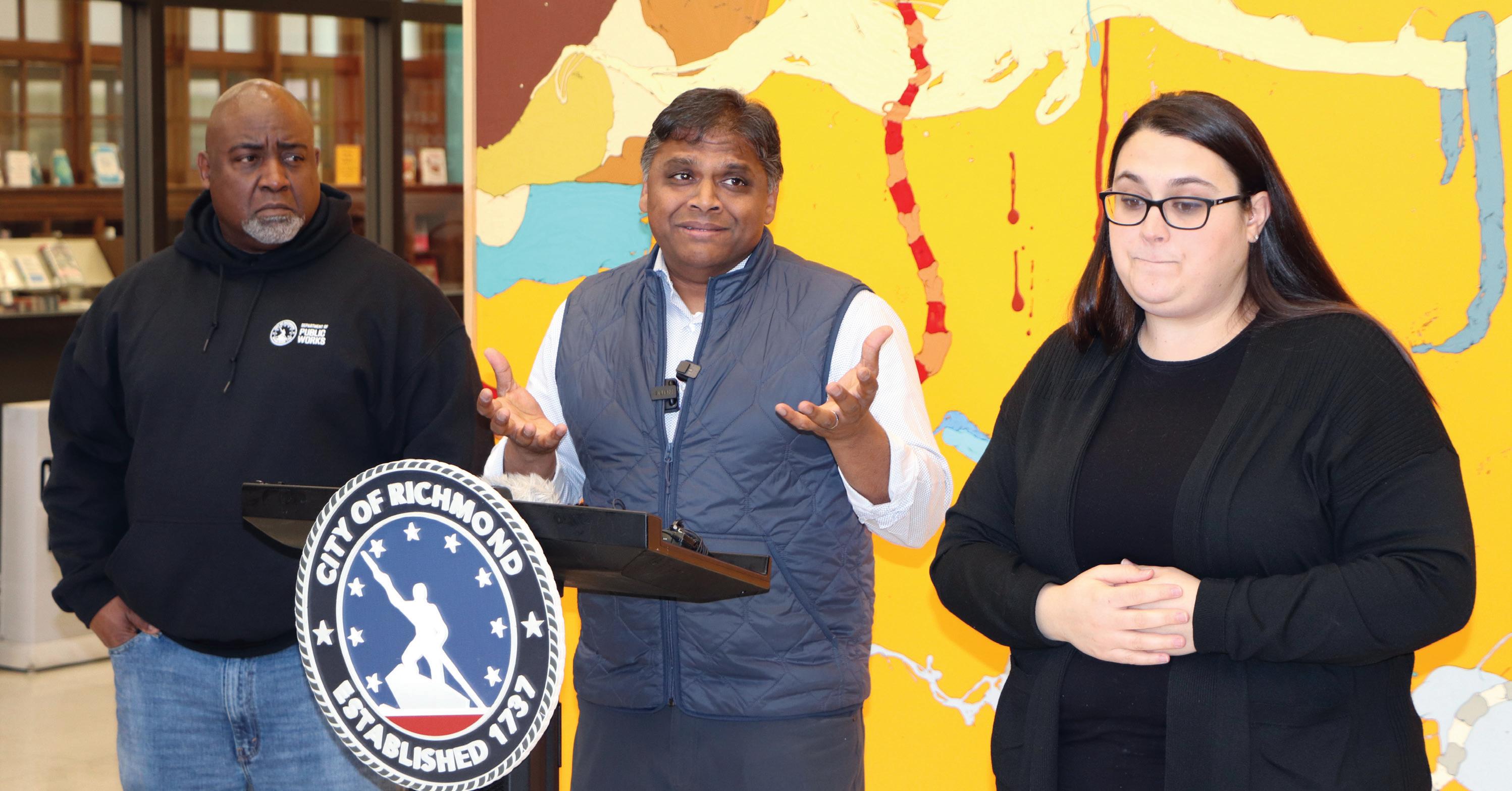
ANDREW KERLEY
Contributing Writer
Danny Avula, inaugurated as the 81st mayor of Richmond on Jan. 1, was quickly met with a trial by fire — or rather, water — as a winter storm wiped out the city’s water utility.
It started when Richmond’s water treatment plant lost power in the morning hours of Jan. 6, which residents first found out about through a post on Reddit. As the facility went dark, water flowed, flooding the basement where servers that function the facility were held, Avula explained at a press conference on Jan. 6. With no operational facility to treat water, people’s faucets began to run dry in the afternoon.
The city did not publicly acknowledge the incident until 4:26 p.m. that day, when they announced a city-wide boil water advisory — directing residents to boil tap water to kill bacteria before drinking it. Avula said residents may experience water pressure issues.
Avula originally said water would be back to normal by Jan. 8 at the latest. Between a second electrical failure, restoring water production and testing for drinkability, Richmonders did not have clean, running water until Jan. 11, according to the city.
The crisis left thousands of people without clean drinking water, working showers and flushable toilets. Bottled water quickly sold out at grocery stores, and many businesses were forced to close.
The city — in collaboration with the Virginia Department of Health and Virginia Red Cross — provided relief by distributing thousands of gallons of water starting on Jan. 7, though the first deliveries were delayed multiple hours as trucks drove on icy roads, as seen on the official city government Instagram.
Gov. Glenn Youngkin — who was in Florida to meet with President-elect Donald Trump — did not call in the National Guard to distribute water until Jan. 10, according to the Virginia National
Guard website.
Grace Blair, a fourth-year political science student, lost shifts at her restaurant job in Carytown as a result of the water crisis. She said she’s worried about paying for bills as well as back-to-school shopping, having already spent $100 on textbooks alone.
“This was a really crucial week for me to make money and do things,” Blair said.
Diana Altenhof, a third-year theatre student, had to change their plans to travel back to Richmond multiple times as water restoration continually got delayed.
“It’s been proven that Richmond does not know how to handle water in a timely fashion,” Altenhof said.
Both Altenhof and Blair criticized the city’s communication in the beginning of the crisis.
“I feel like when you don’t tell the public fully what’s going on, it’s hard for us to be able to figure out how we’re going to pay our rent or go grocery shopping,” Blair said.
Avula said during a Jan. 10 press conference the city was discussing ways to provide relief for people with rent and water bills, as well as for businesses that had to close and employees who lost work. The city has since announced 10-day grace periods for utility bills, parking tickets and other taxes. Avula also unveiled the start of a relief plan that includes a regional relief fund and support for eviction recovery programs.
Avula ran for mayor on his experience of dealing with emergency situations — having led the state’s COVID-19 vaccination efforts in 2021, his campaign website states.
The city regularly posted information regarding distribution site locations and water restoration progress throughout the week, and began translating some of the information to Spanish on their social media on Jan. 8.
RICHMOND BANDS TOGETHER WITH MUTUAL AID
Sheri Shannon is co-founder of Southside ReLeaf, a community organization working for environmental
justice in South Richmond. The group took up the mantle of publishing translated information for Spanish-speaking Richmonders when the city was not.
ReLeaf collaborated with numerous nonprofit organizations to distribute over 100,000 bottles of water — primarily to childcare centers, senior homes and other people who could not get to distribution sites. They also created a resource map, pointing people in the direction of free showers and meal sites.
Shannon said they ran into people who did not know there was a boil water advisory or why their water pressure was low. She said there was a need for proper emergency response networks and for the city to diversify communication channels via push notifications, digital billboards, PSAs and trusted networks — all multilingual.
“I think this is a moment for Dr. Avula to really connect and deal with the Richmond community, to listen and to hear them, and to just try to restore a lot of the confidence that has been lost over time,” Shannon said.
Kalia Harris, the executive director of the Virginia Student Power Network,
organized with Mutual Aid Distribution RVA to distribute thousands of water bottles throughout the week.
Harris also criticized communication, but said the problem could have been solved earlier if former Mayor Levar Stoney’s administration put more focus on strengthening infrastructure, instead of failed development projects like Navy Hill, building casinos and funding the police.
Documents show infrastructure problems with the water treatment plant were well-known years in advance, according to a report by WTVR.
Harris emphasized that disasters like the water crisis are commonplace for people dealing with food insecurity and their utilities going out — especially when the state does not meet the needs of the people in a worsening political landscape.
“I do encourage folks to tap into the mutual aid efforts that are happening every day,” Harris said. “The more people that join when it’s not a huge crisis, that will actually help us to build our capacity, to maybe even prevent these crises from happening.”
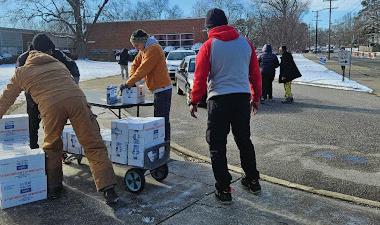
Stat
VCU graduate student guard Joe Bamisile led the Rams in scoring with 18 points in the 73-61 win against Fordham University, according to VCU Athletics.
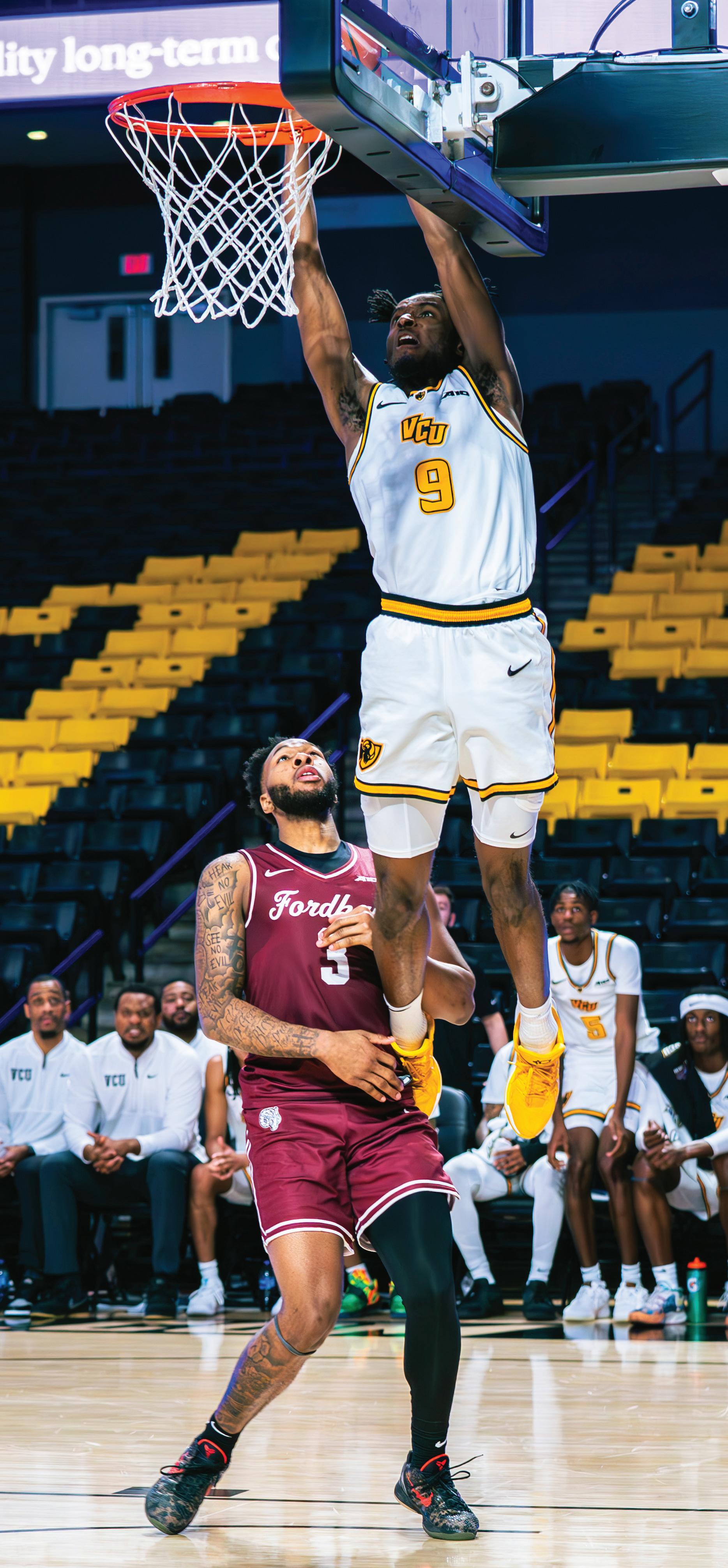
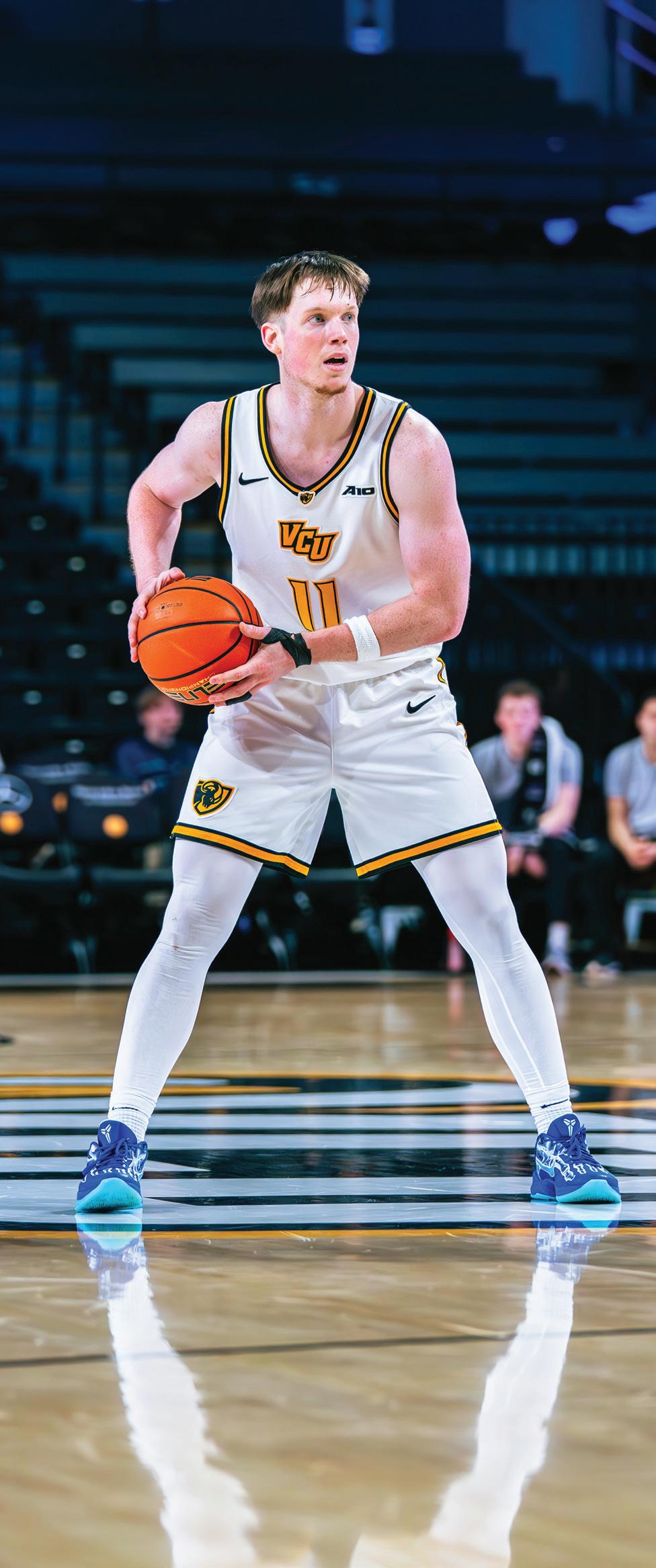
JENNY ALLEN ETHAN YORK
Contributing Writers
In a gym devoid of fans, VCU started off the game winning the tip-off but weren’t able to score on their opening drive.
Fordham University fourth-year guard Jackie Johnson III scored the first points of the game.
Graduate student guard Max Shulga was able to score the first points for VCU, according to StatBroadcast.
Despite the empty arena, Shulga is thankful to play the game.
“It was weird, we obviously want our fans to be at this game. Unfortunately the situation with the water has everyone going through it, but it is also a blessing to be able to play the game,” Shulga said.
Fordham graduate student guard Japhet Medor sank a three to tie the game 7-7 with VCU at the 13-minute mark.
After a Fordham timeout, Shulga hit a jumper putting VCU up with a one-point lead 10-9 at the 11-minute mark.
Ten minutes into the first half, VCU led 14-11, with a competitive back-and-forth from both teams.
A great offensive drive led to a fadeaway jumper and gave VCU graduate student guard Zeb Jackson his first points of the game.
Fordham was on a cold streak and had missed all of their last six field goal attempts at the fiveminute mark, according to StatBroadcast.
VCU also went on a two-minute scoring drought with three minutes left.
A jumper by Fordham graduate student forward Matt Zona gave them a 20-19 lead.
VCU first-year guard Terrence Hill Jr. ended their scoring drought with a driving layup and was awarded a free throw after getting fouled by Fordham.
Jackson then scored a step-back jumper giving VCU a 24-22 lead.
At the end of the first half, Shulga led the team in scoring with seven points, keeping the team’s lead, 24-23.
VCU started the second half with the ball
with graduate student forward Jack Clark scoring off a jumper.
Shulga slammed the ball in with a dunk, to give VCU a 34-25 lead over Fordham, at the 17-minute mark, according to StatBroadcast.
VCU stayed strong offensively going fourfor-four on their field goals at the 16-minute mark, according to StatBroadcast.
At the four-minute mark, graduate student guard Joe Bamisile kept VCU’s offense alive with a strong offensive drive on the fast break, holding onto an eight-point lead, 36-28.
Zona ended Fordham’s two-minute scoring drought with a three at the 14-minute mark, according to StatBroadcast.
Fordham got their sixth team foul after giving Bamisile an and one, making the score 38-31.
Bamisile made his presence known in the second half making back-to-back threes at the 12-minute mark, according to StatBroadcast.
Bamisile set VCU first-year forward Luke Bamgboye with an alley-oop, extending VCUs lead 48-42 with just over ten minutes left in the second half.
When asked about Bamgboye’s development with the team, Bamisile showed confidence in his teammate.
“I’m very proud of little man,” Bamisile said.
VCU guard Alphonso “Fats” Billups shut down a Fordham drive with a steal and ended a successful VCU drive with a three at the nineminute mark, according to StatBroadcast.
With eight minutes left in the second half, Shulga knocked down three shots at the line giving VCU a 14-point lead, 58-44, according to StatBroadcast.
VCU head coach Ryan Odom had words for his city amidst its water crisis after a big game.
“Our guys were disappointed that our fans couldn’t be here, but we understand why, and our job was to play for them, those that couldn’t be there,” Odom said.
VCU Rams stayed strong and consistent in their 73-61 win over the Fordham Rams.
The VCU Rams will play their next game at the Hagen Arena against the Saint Joseph’s Hawks on Friday, Jan. 17 at 7p.m.
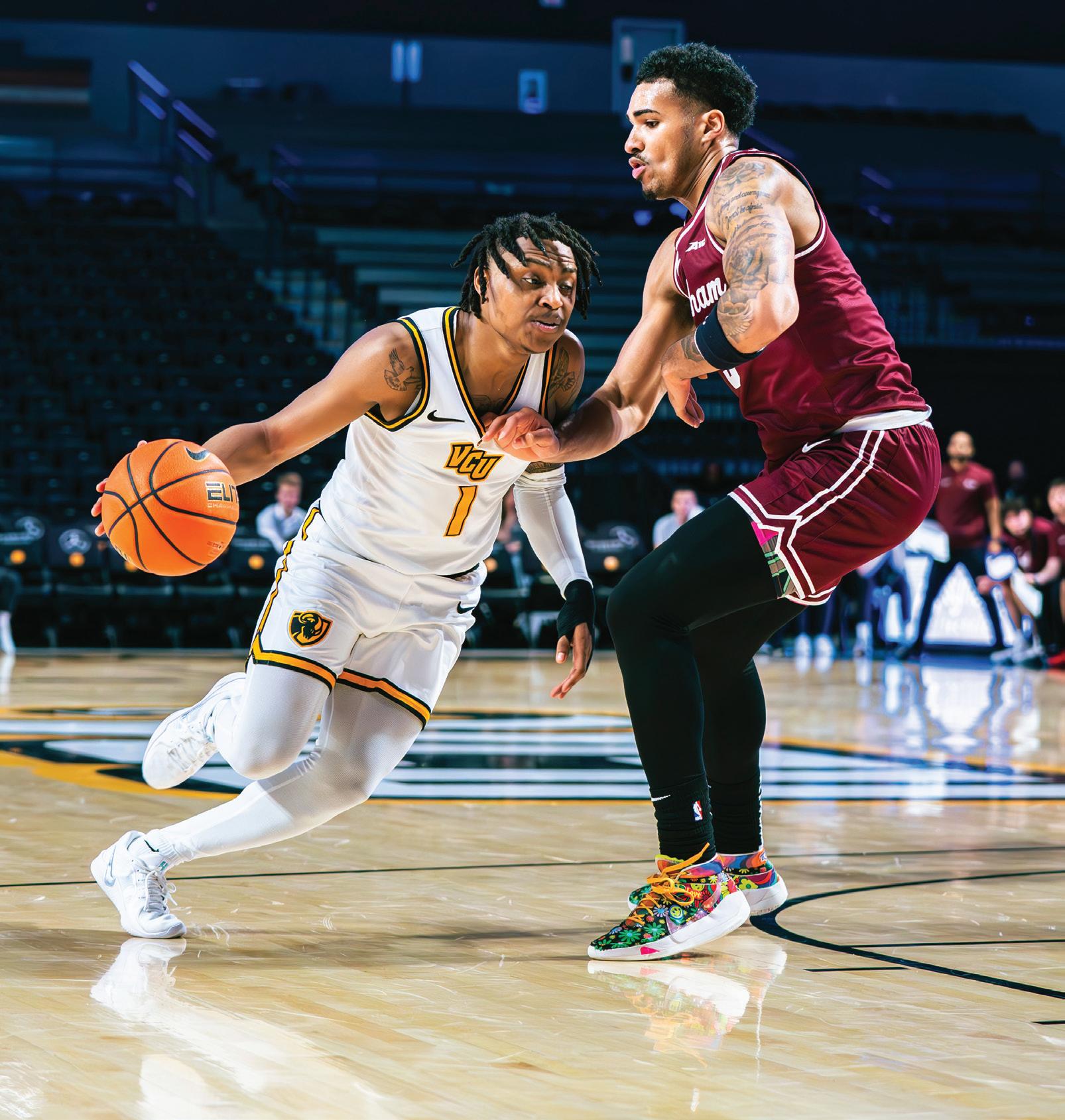
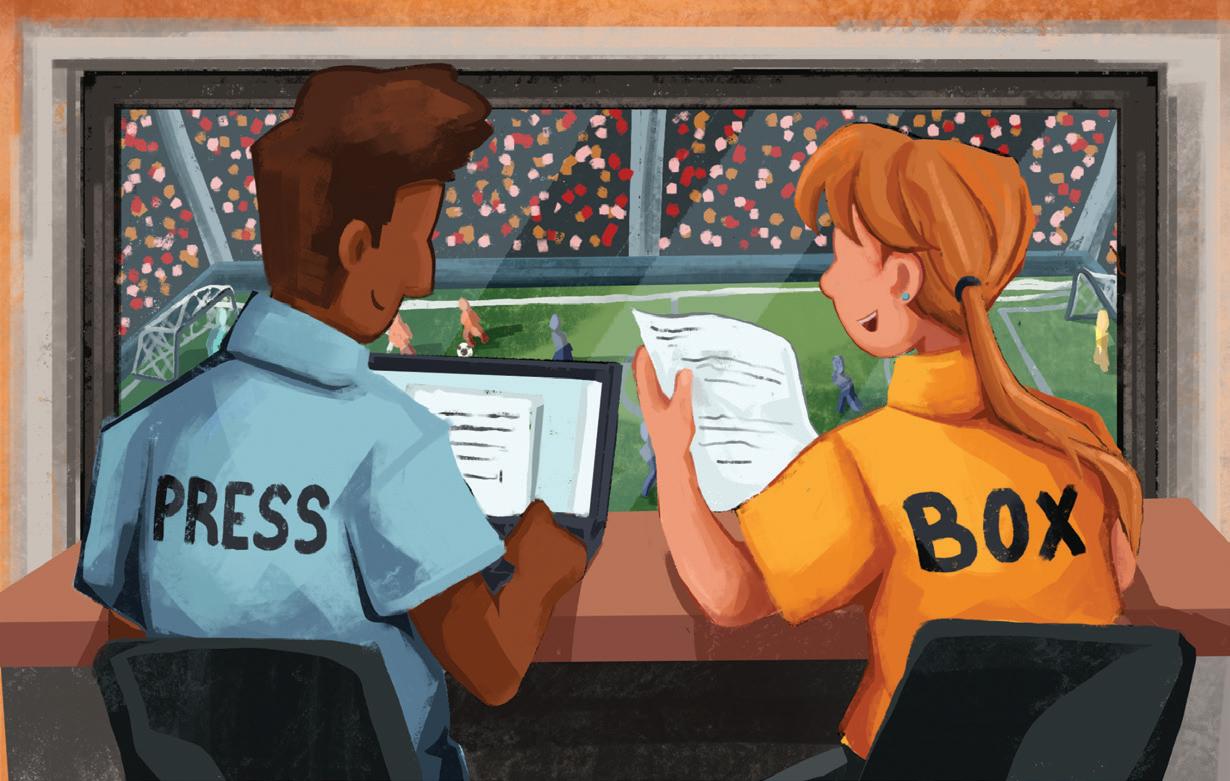
KYLER GILLIAM
Contributing Writer
I have been disappointed with the new 12-team format for the College Football Playoff. Blowouts, nonsensical seeding and prolonged time frames are hurting my joy of College Football. I don’t want to sound like the old man yelling at change, but the CFP needs to revert in some ways.
First, there are not 12 teams in College Football that deserve to compete for a national championship; this is not the NFL that thrives off of parity. College Football is the biggest showcase of the haves and have-nots.
It is nearly impossible to break the glass ceiling of a national championship. With 134 Division I Football Bowl Subdivision teams supposedly playing for one championship without a draft system, it is unrealistic for certain teams to be able to rise to national championship status.
Cutting the field down would benefit the competitive imbalance that the 12-team playoff introduced.
Second, the seeding of the playoffs makes no sense. After a committee of officials from different schools come together and rank the teams one through 25, they take the five highestranked conference champions and give them an automatic bid to the playoffs. The top four conference champions get automatic bye weeks. This has created wonky seeding which ultimately hurts the number one seed.
The University of Oregon and Penn State University played in the Big Ten Championship Game, and Oregon won and secured the bye putting Penn State as the sixth seed.
Oregon then had to play higherranked teams due to the bye system. Instead of playing either Indiana University or Boise State University, they were faced with the winner of Ohio State University and University of Tennessee, both topsix teams, while Penn State received a home game against Southern Methodist University.
Oregon was believed to have the harder road by many in the College Football community, and
it proved true when Oregon was down 34-0 before halftime against Ohio State, and Penn State found their way to the semi-final after two blowout wins.
Lastly, the playoffs last too long. College Football would usually have a champion by New Year’s Day, but now we have pushed the title game to Saturday, Jan. 20. The playoff started two weeks after the conference championships, leading to a disadvantage for the teams that received a bye. All teams that received a bye fell behind early in their games and ultimately lost their matchups.
Pointing out the rest vs rust argument, having to play against a team that played the week before after having a three-week hiatus might be a disadvantage, even if the rest gets your team healthier.
I have two solutions to fix this problem:
First, drop the number of teams to six, no auto bids for conference champions. Then give the top two teams in the rankings byes. The third seed and the sixth seed play each other and seeds four and five play each other, and then reseed after round one so the one seed would have to play the lowest seed remaining. All games — except for the championship — should be home games for the highest seed. Rotate the National Championship with a New Year’s Six bowl game site every year.
Second, if the 12-team model has to stay, auto bids for the five highest-ranked conference champions, but no automatic byes. The rankings will be the seeding for the playoff. This format will follow the current bracket of the CFP. All games are home games for the highest-ranked teams except for the semifinal and national championship. The semifinals will be two of the New Year’s six bowl games of the highest-ranking teams choosing. The losers will play in the other four New Year’s Six bowl games to end their season. This playoff would start the week after the conference championship.
Now, I don’t think the College Football Playoff committee will look at my solutions, but if they did, it would be for the best of the sport.

HAYDEN BRAUN
Contributing Writer
The upcoming matchup between the Boston Celtics and the Los Angeles Lakers on Jan. 23 will be highly competitive.
The Celtics have been dominant this season with a 28-11 record, sitting No. 2 in the Eastern Conference. Celtics forward Jayson Tatum leads the team with an outstanding 28.1 points per game and 9.4 rebounds according to ESPN, while Celtics guard Jaylen Brown holds 23.8 points per game, according to ESPN.
Boston’s offense is ranked No. 5 in the league, averaging
JANUARY 8
WOMEN’S BASKETBALL AT LOYOLA CHICAGO WON 62-44
MEN’S BASKETBALL VS FORDHAM WON 73-61
JANUARY 12
WOMEN’S BASKETBALL VS SAINT JOSEPH’S WON 57-50
118 points per game, according to Fox Sports. Defensively, they rank No. 6, allowing just 108.7 points per game, according to Fox Sports.
The Lakers have faced inconsistency and league-average performance this season. They sit at a 20-17 record and are No. 7 in the Western Conference.

The unavailability of star role players, like forward LeBron James and center Anthony Davis due to injury, has been a key factor in the Lakers’ performance this season. The Lakers’ success relies on their role players, which has created inconsistency in both offensive and defensive output. The
Lakers’ supporting cast has had some moments this season, but they have yet to find consistent secondary contributors.

James is averaging 23.7 points, 7.6 rebounds and 8.8 assists per game, according to ESPN. While Davis contributes 25.9 points and 11.9 rebounds, according to ESPN.
However, the Lakers’ defense has struggled, ranking No. 20 in the league in points allowed with 114.3 points per game, according to Fox Sports.
The Celtics’ superior overall performance and more balanced play on both sides of the ball look to have the Celtics favored in this exciting matchup.



The donkey was announced as the symbol of the U.S. Democratic Party in 1870.
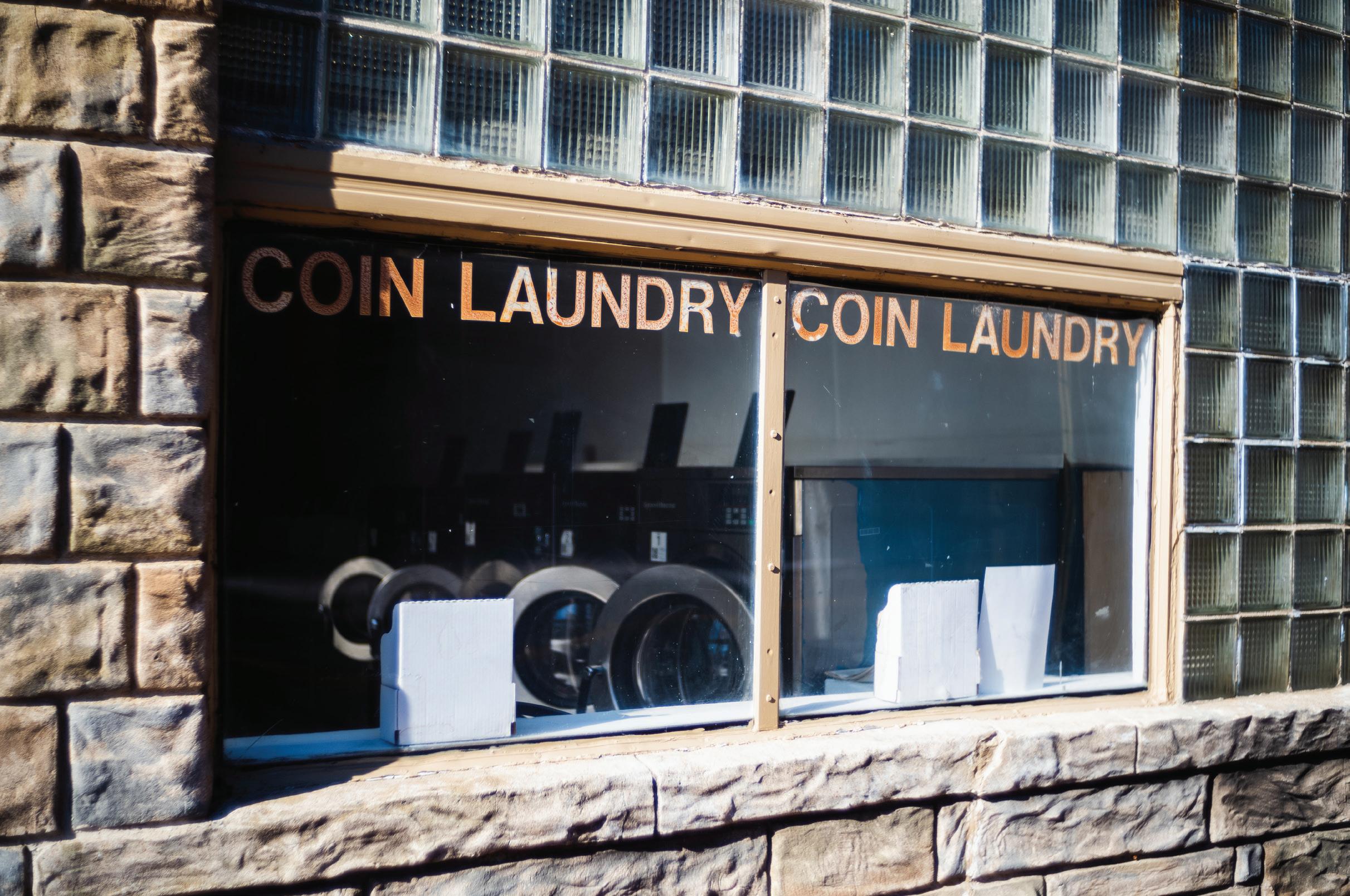
MAEVE BAUER
Contributing Writer
Laundromats have been a staple in the Richmond community for decades, each containing a different cultural hub.
Neighborhood Laundromat has four locations throughout Richmond and Chesterfield County. The owner, Al Bingenheimer, said he opened the business in 2014 to create an engaging and safe environment, working diligently to keep the shop clean and taking his time to create both a conversation with customers and a conversation between customers.
Bingenheimer said he has noticed a slight decrease in social interaction in his shop over the years. Many patrons now come in with their heads down and headphones on, which he said he attributes to the COVID-19 pandemic.
“The pandemic was the start of people being able to avoid other people,” he said.
Bingenheimer expands more on his experience with the COVID-19 pandemic, explaining that clean clothes were essential and his business helped those who worked in hospitals.
“Back then it was the people that were working in hospitals, working at the doctor’s office. Those were the folks that needed it the most,” said Bingenheimer.
A more recent issue that affected Bingenheimer’s business was the water shortage and boil advisory that Richmond experienced on Jan. 6-10.
Bingenheimer said his phone was ringing off the hook, but he had locations in Chesterfield
that were able to run. Hospital workers and first responders need to be able to take care of their clothes, according to Bingenheimer.
The Neighborhood Laundromat has been a part of different types of art projects over the years usually involving VCUarts students, according to Bingenheimer.
“Another thing that I’ve done is trying to support the arts. I’ve had different videos — rap videos, music videos, movie scenes — shot in the laundromat through VCUarts. I just had a guy that did a music video and they published it on YouTube a couple of weeks ago,” Bingenheimer said.
Bingenheimer encourages people to check out the video on the Strawberry Neighborhood Facebook page.
Franklyn Edmundson, a fourth-year health science student, is a new regular at the Neighborhood Laundromat, on Strawberry Street. Edmundson is newer to the area; the laundromat came highly recommended to him by his roommates, he said.
Edmundson has found the environment to be very welcoming. He hasn’t had too much interaction with other customers, but the ones he has had have been pleasant, he said.
“The owner came in. He was super nice, so that was very cool, seemed very genuine. The people that I met here at the Strawberry Street Neighborhood Laundromat have been very kind as well,” Edmundson said.
Another dry cleaning business Moizelles Cleaners & Launders has been serving Jackson Ward for 70 Years, according to Sandra Harvey of Moizelles.
Harvey said that the business is very community-based, serving a diverse population of clients.
“ It’s a diverse group of people that come in because now downtown Richmond is composed of a diverse group. You find fewer college students coming in because they don’t have the finances to dry clean,” Harvey said.
Although Moizelle’s is not a laundromat, it offers wash, fold and dry services, along with a discount for college students.
Harvey said they work to create a relaxed atmosphere for customers. While they have long-standing regulars, the gentrification of Jackson Ward has brought in a new customer base, they said.
“ This city is really going through a — what you would say — gentrification. We’re getting a different type of customer from the customers that we had 20 or 30 years ago because Jackson Ward was a hub for the Black community,” Harvey said. “It has changed over time and we get a diverse group of people. Young, old and middle-aged, a diverse group of professions.”
Despite the changing environment, Moizelles has stood the test of time. Harvey says that they are the only dry cleaning plant in Downtown Richmond, meaning they dry clean clothes in the shop, instead of sending them to another location to be cleaned.
Harvey said they also haven’t felt the threat of chains taking away business.
“ We have seen over the years that chain cleaners do not tend to survive. That’s because they charge a cheap price and they’ve got to take in such a volume of clothes. What we offer is quality service,” Harvey said.
BRAXTON HARE Spectrum Editor
College life is no longer just about latenight study sessions and cramming for exams. For many students, it’s also about managing a creative side hustle to make ends meet or explore passions beyond the classroom. Whether it is selling art on Etsy, performing at local venues or running an online clothing shop, students are finding new ways to balance academics with entrepreneurship.
Jayce Lips, a third-year health services student, shared their perspective on working as a nail technician while also balancing a rigorous academic schedule as a full-time college student.
Lips said that learning new nail designs and trying new things has helped slowly shape them so they feel more comfortable expressing themselves in their everyday life.
“I am always wanting to try a new design or idea on nails. I love doing freestyles or nails that have a type of vision board for them,” Lips said. They said that the balancing act between nail technician and student isn’t always easy.
“There are times I’ve had to pull back on how many appointments I have set up,” they said. “But I’ve learned to set clear boundaries and schedule my time effectively.”
Lips further shared that giving themselves
days off during the week has helped them

Start building up your portfolio! Take pictures of your friends, or ask to shoot with strangers to practice and learn. It never hurts to take an introductory photography class if you have time before you graduate!”

since that moment, at 15 years old. Thankfully, the ‘busy season’ for portrait photographers is in the summer,” Cunningham said.
She said that she often takes one or two summer classes, but typically has a break from courses during back-to-back shoots, giving her more time to edit.
“Start building up your portfolio! Take pictures of your friends, or ask to shoot with strangers to practice and learn,” Cunningham said. “It never hurts to take an introductory photography class if you have time before you graduate!”
Cunningham said that a contract with clients featuring clear guidelines and expectations is a must.
“It is important to communicate with clients to avoid any misunderstandings about cost, location and timing” Cunningham said. Furthermore, students are encouraged to get involved with the da Vinci Center at VCU. This program is “prototyping the future of higher education through

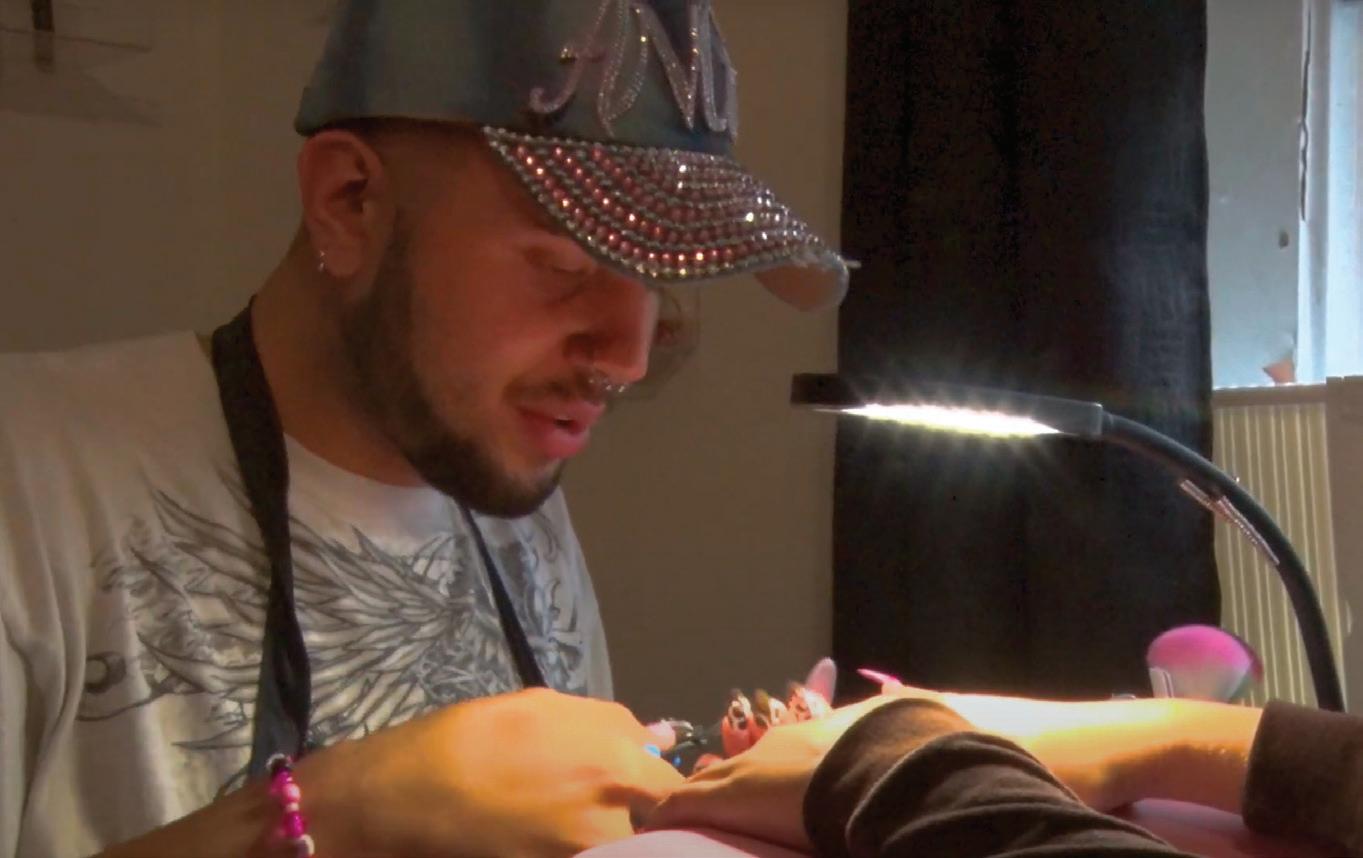
cross-disciplinary academic, experiential, and experimental learning opportunities,” according to their website.
The da Vinci Center is committed to increasing diversity and inclusivity in entrepreneurial and technical ecosystems, recognizing that our students represent the next generation of innovators and creators.
Julien Reininer, a graduate student and a successful graduate of the program, shared their success story and how their small side hustle became a booming business.
“In May of 2021, I entered a pitch competition and shared the idea of a Jackfruit Jerky company with community members and faculty of Virginia Commonwealth University’s da Vinci Center,” Reininer said.
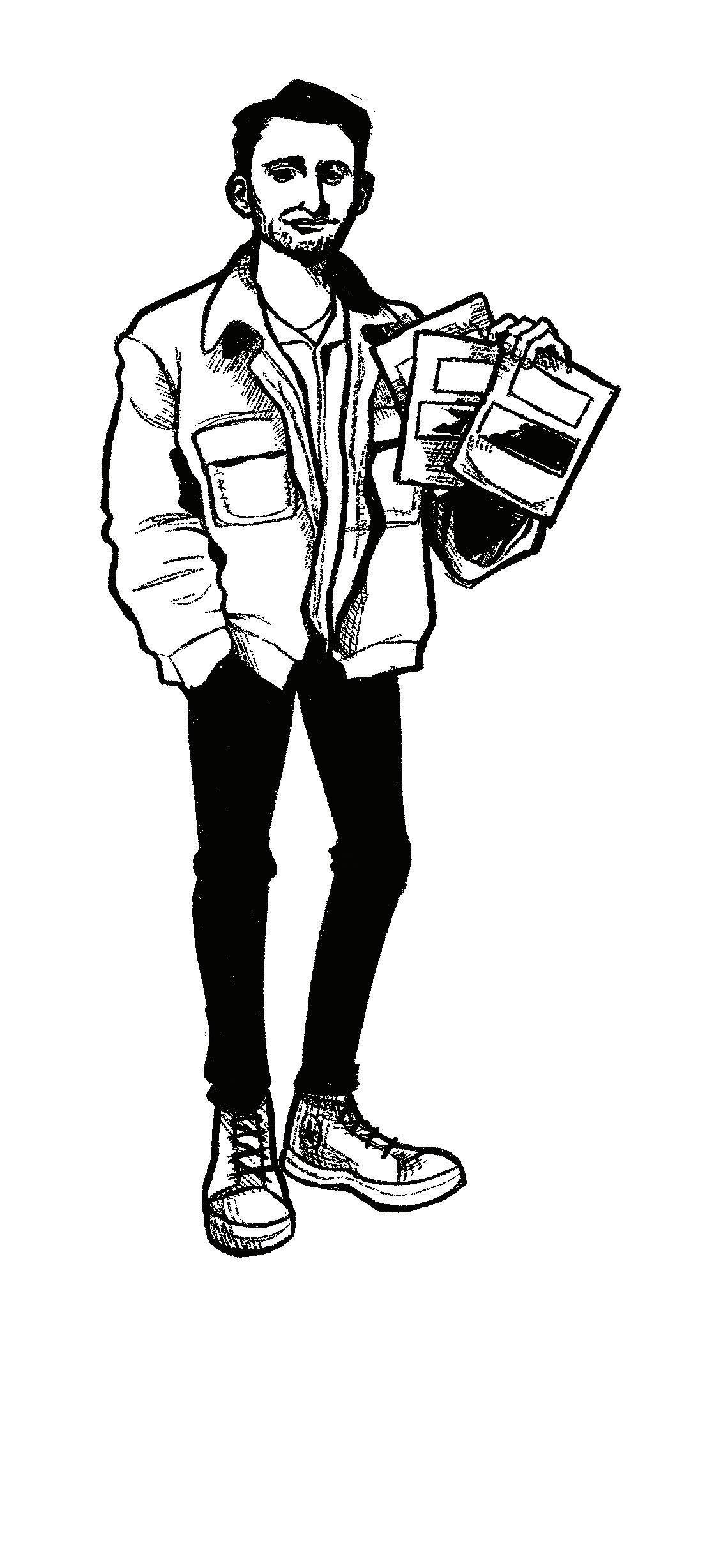
Reininer said that after gaining initial funding, it was time to turn the idea, now called Jacked! into a reality. They decided to stay at VCU for another 18 months and pursue their master’s degree in product innovation while also building Jacked! simultaneously.
“We are now in countless retail stores in not only Richmond but across the entire country. I want this to be a tell-tale example that there is no such thing as a small idea, it’s more so what you do with those small ideas that matter,” Reininer said.
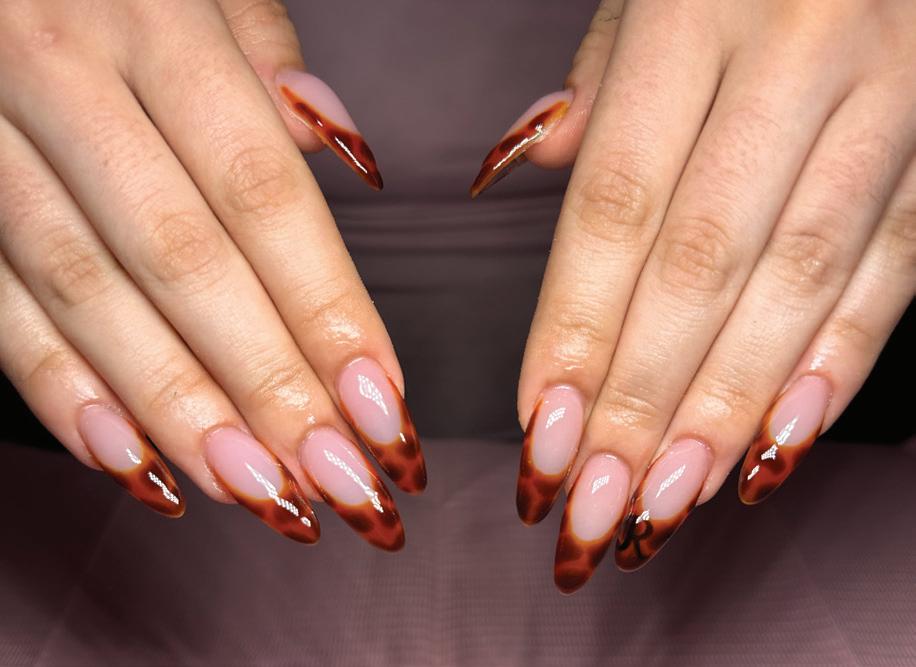
Quote of the week
“The problems of the human heart in conflict with itself… alone can make good writing because only that is worth writing about, worth the agony and the sweat.”
— William Faulkner
NATI FELICIANO-SOTO
Contributing Writer
The term “woke” has been weaponized by parties associated with the far right. What began as an acknowledgment of social awareness has now been twisted to villainize those who challenge systemic inequities.
Originally, “woke” emerged as a term rooted in Black activism, symbolizing social awareness and vigilance against injustice. It was a call to remain alert to the realities of systemic racism, inequality and oppression.
“Woke” is no longer just a word; it is a battleground. It has become a rallying cry in spaces where racism and ignorance are not only excused but allowed to thrive without question. What many do not understand is that to be woke is to stand awake — with eyes wide open to the injustices of the world. Why should anyone
apologize for that?
This resistance to change has reached far beyond the borders of the United States. Just last month, halfway around the world, the Māori Party of New Zealand faced threats of removal from Parliament — a stark reminder of how marginalized voices are pushed out of traditional power structures. In response to their stance against the British Crown pulling back from the 1840 Treaty of Waitangi, the Haka chant led by HanaRawhiti Maipi-Clark was used to protest against the reformation of the bill. Their ousting felt deeply personal to me, especially as a second-generation Puerto Rican American.
I had just returned from a weekend in Puerto Rico, an island I love, but it battles against the erasure of its identity.
Many go to Puerto Rico to explore its rich culture and beautiful beaches. I was there for this reason too, but despite being
on vacation, I could not ignore what was happening to my island.
Gentrification is swallowing Puerto Rican neighborhoods whole. The Republican Party of Puerto Rico uses their influence to protect corporate interests and wealthy investors through Act 60 tax incentives that fuel gentrification and erode cultural heritage. Act 60 incentives are a set of tax benefits offered to attract wealthy investors and businesses to Puerto Rico, providing significant tax breaks on income, capital gains, and property, often allowing Americans to build wealth while bypassing higher tax rates in the mainland U.S. This has sparked a growing “gringo go home” sentiment throughout the island.
The frustrations I felt walking through the gentrified streets of San Juan — the colonial facades polished for tourists while the locals struggle to hold onto their homes — echo the struggles of the Māori people.
Indigenous communities, whether on the mainland United States, Puerto Rico or New Zealand, are constantly forced to defend their cultures, their land and their right to exist in spaces that are rightfully theirs.
As a Puerto Rican born on the U.S. mainland, I feel the pull of two identities. Too often, my heritage has been diminished or dismissed by those who misunderstand Puerto Rico’s colonial history. Yet, it is this duality that fuels my advocacy — not just for Puerto Rican culture, but for all marginalized communities.
Storytelling is one of humanity’s most powerful tools for spreading awareness, and stories have the unique power to humanize social struggles, making them relatable and urgent. By telling stories about the gentrification in Puerto Rico or the silencing of the Māori Party,
myself and others aim to use this tool not just to inform, but to ignite conversations and inspire action. Being woke is about balance, not dominance. It is about listening to stories that have been ignored, and amplifying voices that have been silenced and fostering a world where every perspective is valued.
The backlash against wokeness stems from a fear of change, but change is inevitable. Change is messy and uncomfortable but also necessary for growth. I urge you to lean into your discomfort. Listen to the voices of those who challenge the status quo. Advocate for communities like the Māori people, whose fight for representation mirrors so many others
To be woke is to be awake. Stay awake. Stay loud. Stay unapologetic.”
across the world.
I will not apologize for being woke. I will not apologize for believing that justice matters, that equity is worth fighting for or that voices long ignored deserve to be heard, and neither should you. Progress may feel like an uphill battle, but every story we tell, every truth we speak and every action we take brings us one step closer to a more just world.
To be woke is to be awake. Stay awake. Stay loud. Stay unapologetic.

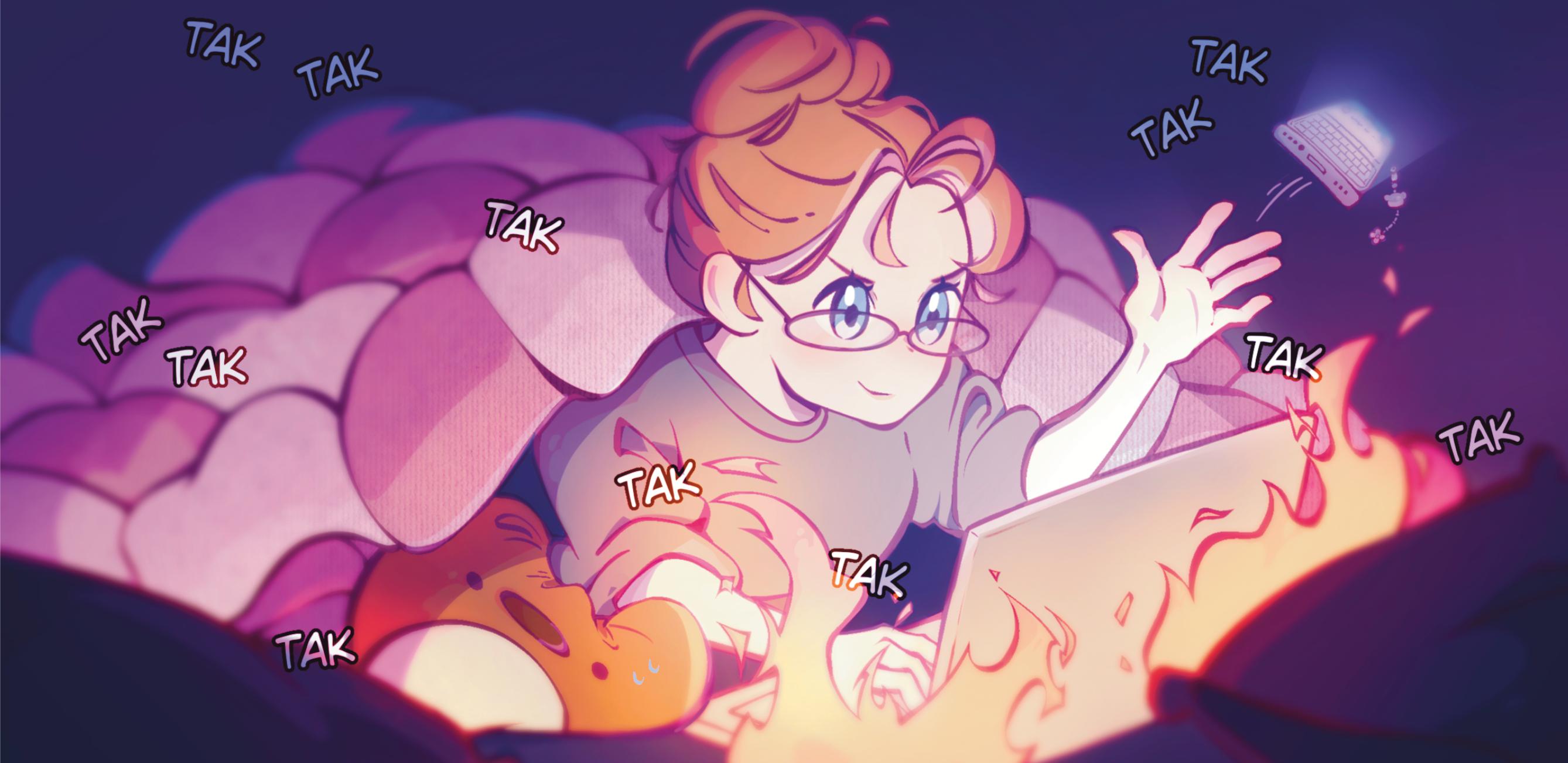
NATALIE MCEWAN
Opinions Editor
When faced with a near-empty pitch deck for this semester’s first paper, I asked myself, “Where are all the opinion writers on campus?”
In a world where people share their opinions online more brazenly than ever, I found myself surprised by just how low participation is here in the Opinions section. In many ways, social media is a much larger Opinions section with a lower barrier of entry. Just about anyone — be it a human or an AI bot — can post their opinions for the world to see.
Does this make opinion writing obsolete? Far from it. All over social media, from X to TikTok, you are more likely to see a hot take that leaves you angry than a relaxing post. Personally, I have deleted my social media accounts on various occasions, typically after I saw an infuriating take.
The algorithms online are designed to inflame, but what if I said you could channel that energy into something else — something that could help you advance your career, develop key skills and make new friends, all while making your side of the argument stronger than ever?
For those of you who are new to opinion writing, it is more casual than an academic essay both in topic and style, but it keeps the bold stances that more neutral news journalism cannot have. You can pitch just about anything as long as it is current; from something annoying you noticed on VCU’s campus, to an opinion you have on a major current event. You probably already announce these opinions every day, from TikToks to texts with friends.
At this point, you might wonder why you should bother writing a 500 word article on the topic when you can already post something much easier somewhere else. Here is where I could beg for writers, but I will instead share all the ways writing articles can help you.
By publishing articles in the student newspaper, your future career could benefit greatly. For one, you can show years of published proof to those jobs that want multiple years of experience and writing samples for an entry level position, and you can build a strong resume.
You will also become a stronger writer. By writing bold, argumentative pieces, you will develop a skill no generative AI model can replicate. Plus, you can write what you are passionate about and only contribute as often as you would like. You can write one article a semester or a pitch every week.
Grammar is a fluid entity — one that changes depending on your genre. Learning how to write within the AP style, the grammar used for news publications, will give you a deeper understanding of the English language and a new tool in your belt.
I know VCU is an “uncommon” university, so I am trying to find bold people to share their unique stories, perspectives and hot takes. If there is something you just cannot get out of your brain, consider pitching the topic to opinions@commonwealthtimes.org. Getting your wildest opinions officially published in a newspaper is pretty fun. You do not need to consider yourself a writer to consider writing about what you are passionate about. You never know how it might change your life.




Joke of the week
“May all your troubles last as long as your New Year’s resolutions.”
— Joey adams
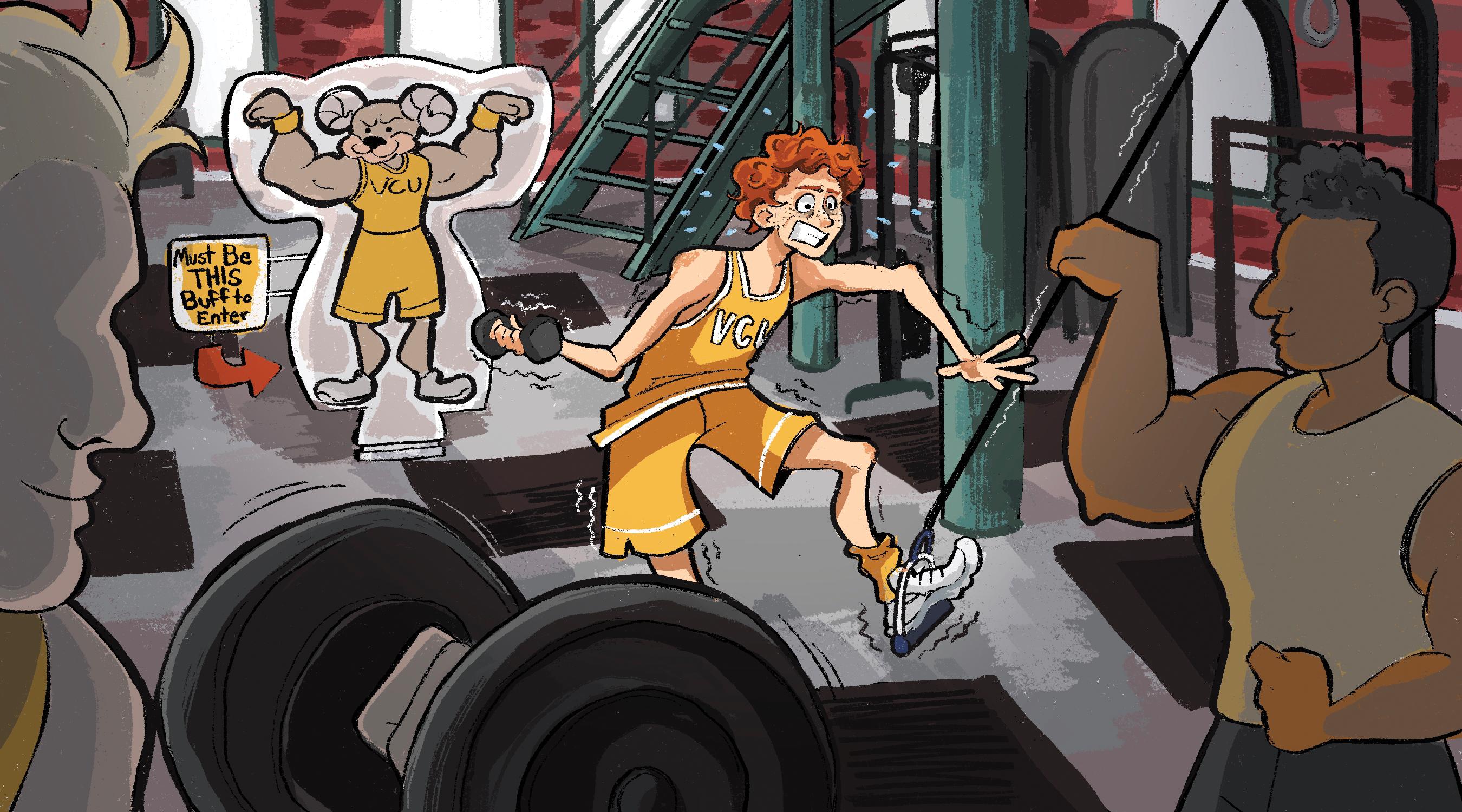
DYLAN HOSTETTER Executive Editor
New Year’s resolutions are just another promise we don’t intend to keep — like when I was a kid and promised my parents I would floss, or now that I’m an adult and promise my dentist I’ll get him that $100 I owe him. But I resolved this year would be different. This year I would stick to my resolutions.
The main issue I have found is people try to take on too many resolutions at once, and sometimes they even conflict. Like, if I resolved to travel more, how could I also resolve to save money? Or, if I resolved to be nicer, how could I also resolve to crush all my enemies? I had to pick just one: Exercise.
To be honest though, I never have been one for exercise. Once in a fourth grade gym class, a dodgeball hit me so hard in the gut my shorts fell down and my shoes untied. That day, amongst the raucous laughter of my pants-wearing peers, I swore off entering a gym ever again.
But this year, I decided to pull my shorts back up, tie my shoes and really make the effort. Good thing for me, I get a free student membership to Cary Street Gym. And boy is there nothing better than a free
membership. Well, unless you count a free donut, or maybe even a free sticker. Man, free stuff rocks.
From the moment I stepped foot in the gym I felt energized. Against the caution of a gym attendant, I immediately began climbing the rock wall. I made it about 10 feet before my arms took on the consistency of freshly-boiled linguini and I fell to the mat.
The attendant recommended I start with some weights, and I recommended a nice place his mother could visit. This was my resolution, not his. I was the one who got to decide what I did next — so I went to lift some weights.
I pretty soon realized the main problem with weights: they’re heavy. How was I supposed to pick this thing up over and over again? It was like 50 pounds! As I looked upon all the buff men and women around me, I couldn’t help but be a bit intimidated — and jealous.
I mean, it sure is easier to lift heavy weights with those big, glistening muscles. How did they get those things anyways? And how could I get them? Something about it wasn’t fair, I just couldn’t put my finger on it.
I started doing some curl-ups with the five pound weights, and after several reps I
was breaking a sweat and feeling pretty good about myself. That was until I looked to my left and saw a 75-year-old woman going to town with a pair of 20 pound weights — and her wrinkly forehead was bone dry.
I decided to put a pause on the weights and instead hit the machines. I approached a strange-looking one with rubber ropes and handles. Having no clue what I was doing, I glanced around me only to meet the critical eye of the gym attendant. I knew I had to figure it out on my own.
I grabbed the handles and sat on the bench, pulling with all my might. Nothing happened. I then stuck my feet through the handles and pulled. The machine actually started to move a bit — a twang of excitement shot through my chest. Next thing I knew, the ropes ripped my feet out from under me, sending me flying and dangling in the air by my ankles.
I tried my best to free myself, but every move I made just got me more tangled. Dangling horizontal in the air, I looked like a rotisserie chicken wrapped in rubber bands. Next thing I knew, the entire gym was gathered around me, staring.
“Somebody’s having a day aren’t they?” said the gym attendant.
“Your mom and I had a day yesterday,” I said mockingly.
His eyes narrowed. To his side, the muscle grandma shook her head at me disapprovingly. I realized I had gone too far.
“Well would you look at that, my shift just ended,” said the attendant as he removed his name tag.
He turned and walked away and soon the rest of the crowd scattered too, leaving me dangling there alone until one of the night janitors took pity on me and cut me down. I tried to slip him a $10 bill for doing me a solid, but he refused on account of the fact he felt sad for me.
When it was all said and done, I wasn’t able to keep my New Year’s resolution after all — I was quickly banned from the gym and sent a bill for all of the equipment damages. I don’t know what hurt worse, the broken promise to myself or the fact I had to sell my car to pay for that exercise machine. If there was a lesson to be learned, it could be that gyms are scary places. You could get hit so hard with a dodgeball your shorts fall down, or you could even see an oddly muscular old woman that makes you deeply question things about yourself. You just never know.
Editor’s Note: The characters and events depicted in this story are fictitious. Any resemblance to real persons, living or dead, is purely coincidental.
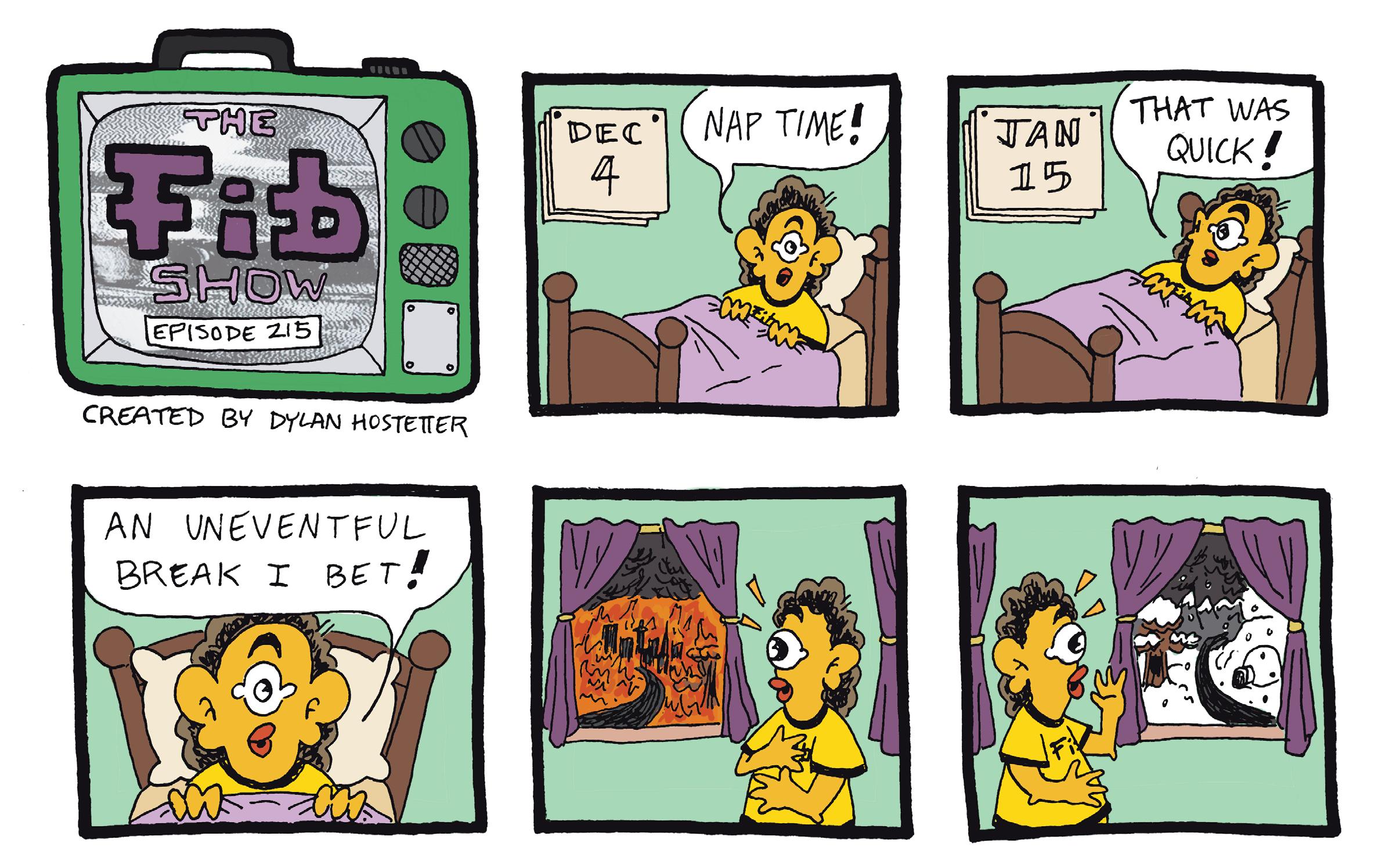
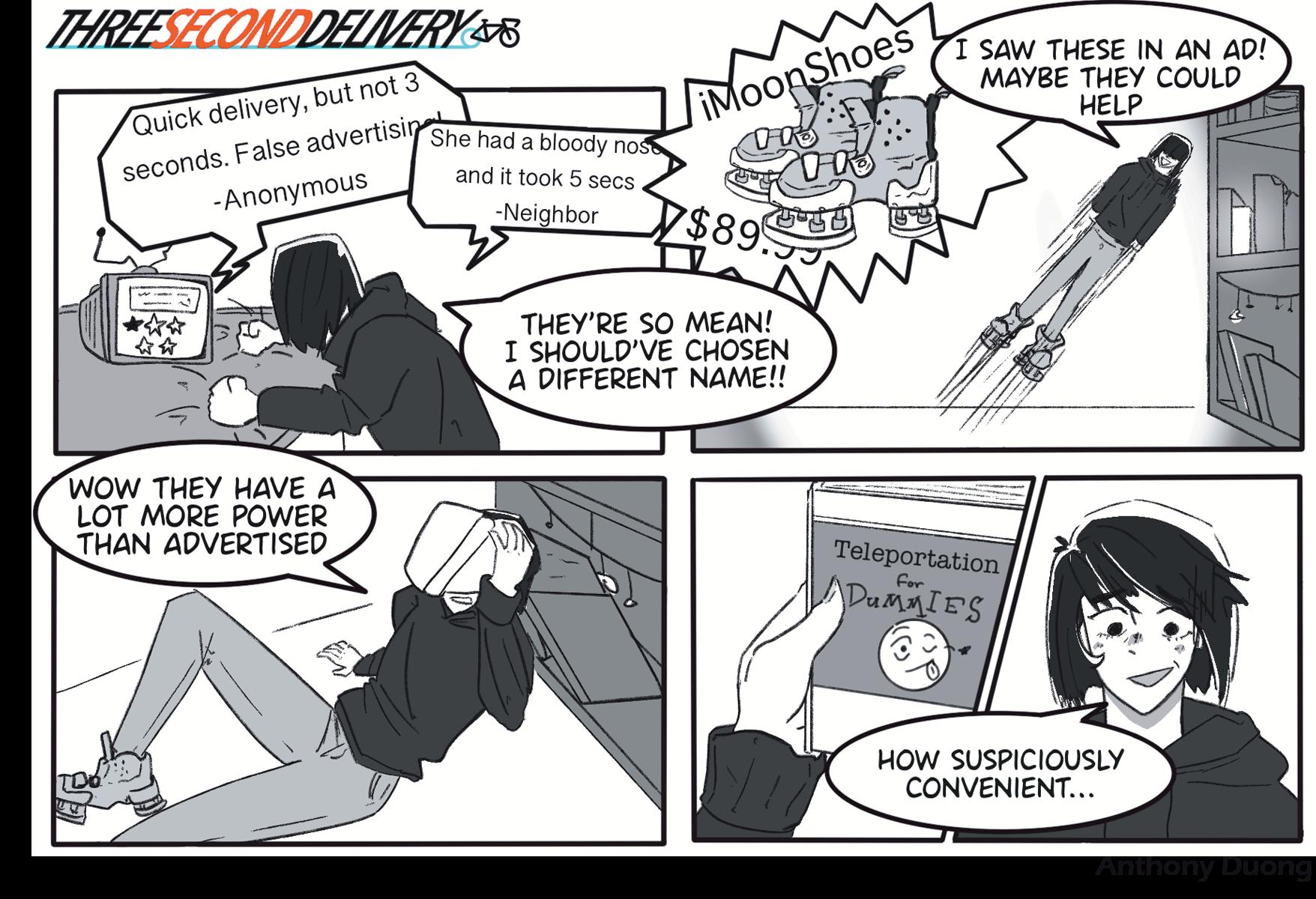
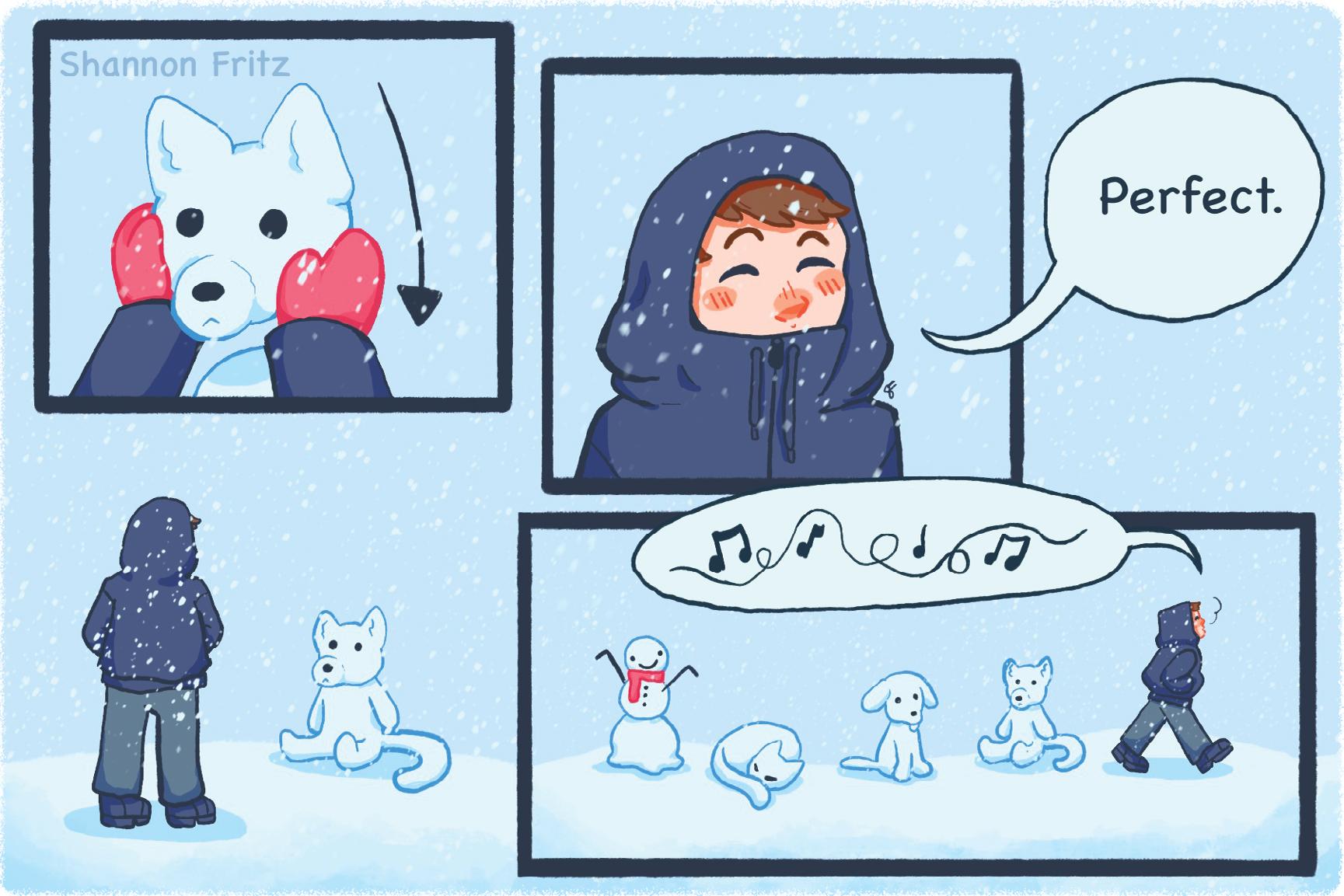
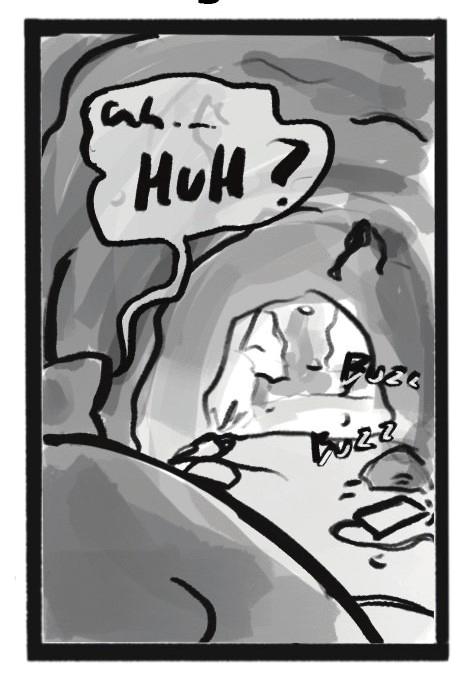
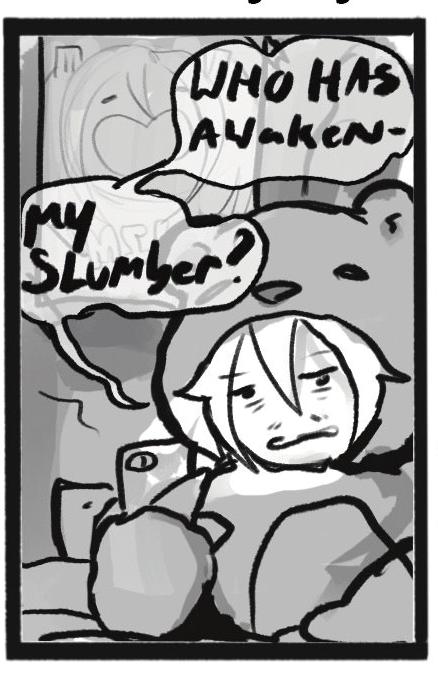
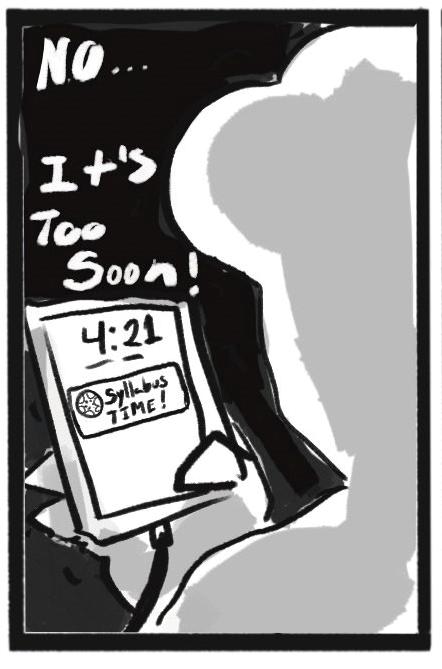

Edited by Patti Varol
By Zhouqin Burnikel
Edited by Patti Varol



